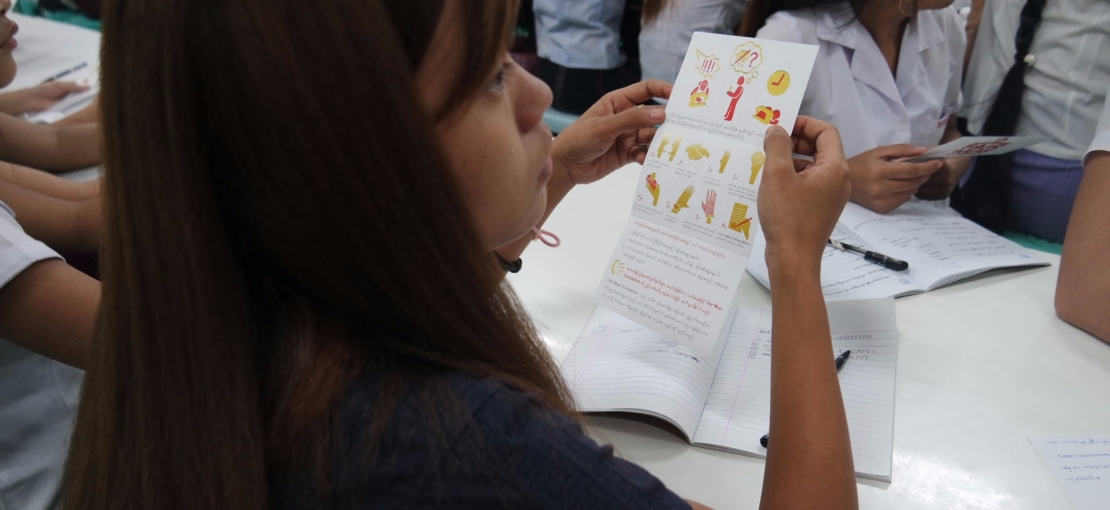
Responsible production in Myanmar?
Production in Myanmar - loyal partnership
VAUDE has a longstanding partner with whom we have made a small number of your VAUDE products in Myanmar. This is a production facility of a Taiwanese partner that we have worked with for years. We are aware of the risks that production in Myanmar brings with it and put considerable effort into ensuring that the production facility meets our high standards. One example is a training project that we implemented in Myanmar that won honors from the FWF.
We have transparency in the production facility and are familiar with the working conditions there. Our partner is also committed to improving working conditions and sees it as part of his responsibility towards his employees. He was awarded the 2016 Excellence Award for his commitment by the Textile Industry Association (MGMA) – the Social Compliance Excellence Award. We are very pleased that our producer is on the right track.
Why does VAUDE produce in Myanmar?
Our partner had already started production in Myanmar in 1999 – at the time mainly for the American market. After the USA embargo in 2003, many of our partner’s customers canceled their orders. So the producer asked us whether we could move some production to Myanmar. Due to the embargo, our partner had existential problems and badly needed new customers. In order to maintain jobs there, VAUDE decided to expand its production to Myanmar in 2003. Since that time, we have manufactured specific products in this factory.
Today the factory employs nearly 2,000 people. VAUDE orders make up 44% of the total capacity. The production facility in Myanmar accounts for 11% of the total turnover of all VAUDE product groups.
FWF allows the production in Myanmar only under certain conditions
The following additional requirements from the FWF are in effect for production in Myanmar:
- Working with production facilities that are connected to the military is prohibited.
- When a company wants to produce in Myanmar, it must discuss the reasons for this in advance with the FWF.
- The FWF-member shall contribute to social dialogue with the production facilities.
- An explanation of how the 8 working standards in Myanmar can be improved.
- Wages at the factory must be published.
Monitoring of the production facility in Myanmar
In the audit there were some deviations that were collected in the corrective action plan (CAP). We have already met with our producers and discussed the CAP as well as developed and set measures for remediation. Our CSR employees don’t just check on the progress made, but work together with the producers, offering them expert advice for implementing the measures. Our CSR employees visit the production facility several times per year.
In addition, the audit involved reviewing wages and creating a comparison of wages paid with the minimum wage. We've decided to represent wages in PPP$ rather than local currency. Why?
You can't compare salaries of different countries of production if they are given in local currency because you don't really know how much things cost there. For this reason, we have converted wages and also minimum wages into their purchasing power using the World Bank's conversion factor.
Myanmar Wages
Create your own infographicsInterested in wages in other countries? You can find them here
Social Compliance Excellence Award
We are very proud that our producer was awarded the Social Compliance Excellence from the Textile Industry Association in Myanmar (MGMA) in 2016.
Skills training
SMART Compliance Academy
For this reason we have cooperated with SMART Myanmar for several years. SMART is a European Union project with the goal of promoting sustainable textile production in the country. Our producer has participated in the SMART Compliance Academy. Within the framework of this 6-month training, the fundamentals of a sustainable management system are taught in workshops and factory visits, and the system is put into practice. In addition, our producer took part in additional training in the areas of personnel management and intercultural communication.
SMART Personnel Management Training
Our producer also participated in a personnel management training program that SMART Myanmar organized. The goal of the training was to improve the processes of the human resources management system.
Training on freedom of association
Another step our producer took was to attend a workshop by the Gesellschaft für Internationale Zusammenarbeit (GIZ). The goal of the training was to point out how producers can improve dialog with their workers in order to improve mutual understanding and prevent conflicts.
VAUDE honored by the FWF
| GRI: | G4-LA15 |
| GRI: | G4-HR11 |






